<Back to Index>
- Intelligence Officer André Dewavrin, 1911
- Governor of Chad Félix Adolphe Éboué, 1884
- Général d'Armée Edgard de Laminat, 1895
PAGE SPONSOR
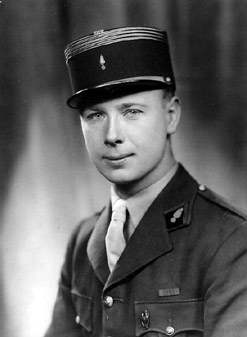
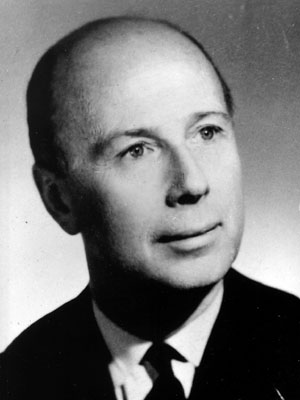
Andre Dewavrin (9 June 1911, Paris – 21 December 1998) was a French officer who served with Free French Forces intelligence services during World War II.
He was born in Paris, the son of a businessman. He graduated as an army engineer and in 1938 began to teach as a professor in Saint Cyr military academy.
After the outbreak of World War II, Dewavrin was assigned to Norway in 1940 before he joined General Charles de Gaulle in Britain. He received the rank of major, took charge of the Free French military intelligence unit Bureau Central de Renseignements et d'Action (BCRA), and took the code name "Colonel Passy". He began to help organize the French Resistance movement and cooperated with the SOE.
Dewavrin collated information from the French Resistance and planned operations for 350 agents who were parachuted to France to work with them. He secretly traveled to France on occasion to meet with the Resistance and coordinate intelligence gathering and sabotage. On 23 February 1943 Dewavrin parachuted to France alongside Pierre Brossolette to meet with Jean Moulin.
Later in 1943 Dewavrin's organization was merged with the conventional secret service of the Free French Forces to form DGSS under Jacques Soustelle. Dewavrin served as Soustelle's technical advisor before he took the lead of the organization in October 1944. After the Normandy Invasion, Dewavrin became Chief of Staff to General Marie Pierre Koenig, the Commander of the French Forces of the Interior.
After the war, Dewavrin was head of intelligence for de Gaulle's provisional government until de Gaulle resigned in January 1946. His successor accused Dewavrin of embezzling Free French money for his own purposes. Dewavrin was jailed for four months in Vincennes. He was eventually acquitted for lack of evidence. British historian Antony Beevor suspects that Dewavrin might have tried to collect money to work against a possible communist takeover attempt.
Dewavrin published three volumes of memoirs in 1947, 1949 and 1951, and eventually retired from the army to become a businessman.
He portrayed himself in Jean Pierre Melville's movie, L'Armée des ombres.

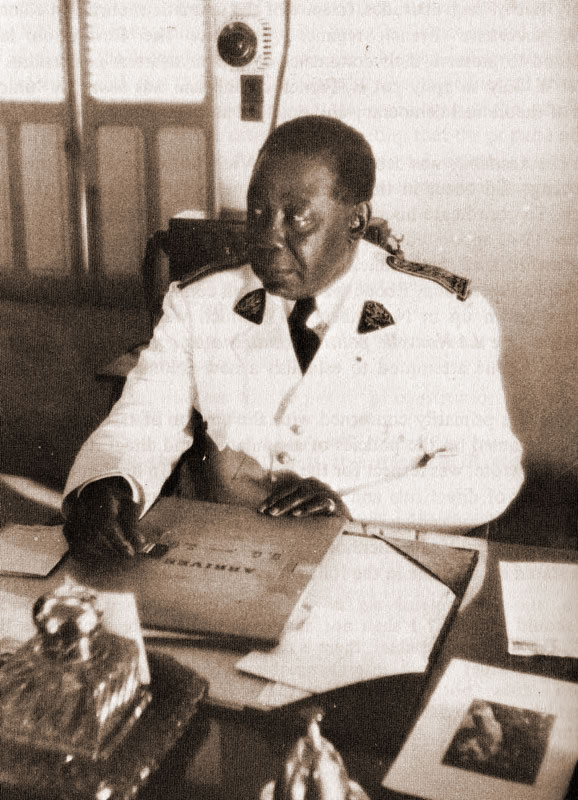
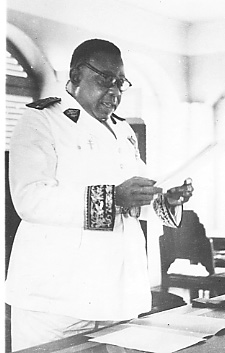
Félix Adolphe Éboué (26 December 1884 – 17 March 1944) was a Black French (French Guianan born) colonial administrator and Free French leader. He was the first black French man appointed to high post in the French colonies, when appointed as Governor of Guadeloupe in 1936. As governor of Chad during most of World War II, he helped build support for the Free French in 1940, leading to broad electoral support for Charles de Gaulle's group after the war. He supported educated Africans and placed more in the colonial administration, as well as supporting preservation of African culture. In 1944 he was the first black to have his ashes placed at the Pantheon in Paris after his death.
Born in Cayenne, French Guiana, the grandson of slaves, Félix was the fourth of a family of five brothers. His father, Yves Urbain Éboué, was an orator, and his mother, Marie Josephine Aurélie Leveillé, was a shop owner born in Roura. She raised her sons in the Guiana Créole tradition.
Éboué was a brilliant scholar who won a scholarship to study at secondary school in Bordeaux. Éboué was also a keen footballer, captaining his school team when they traveled to games in both Belgium and England.
He graduated in law from the École nationale de la France d'Outre - mer (called École coloniale for short), one of the grandes écoles in Paris.
He married Eugénie Tell. In 1946 one of their daughters, Ginette, married Léopold Sédar Senghor, the poet and future president of Senegal.
Éboué served in colonial administration in Oubangui - Chari for twenty years, and then in Martinique. In 1936 he was appointed governor of Guadeloupe, the first man of black African descent to be appointed to such a senior post anywhere in the French colonies.
Two years later, with conflict on the horizon, he was transferred to Chad, arriving in Fort Lamy on 4 January 1939. He was instrumental in developing Chadian support for the Free French in 1940. This ultimately gave Charles de Gaulle's faction control of the rest of French Equatorial Africa.
As governor of the whole area during 1940 - 1944, Éboué acted to improve the status of Africans. He classified 200 educated Africans as notable évolué and reduced their taxes, as well as placing some Gabonese civil servants into positions of authority. He also took an interest in the careers of individuals who would later become significant in their own rights, including Jean - Hilaire Aubame and Jean Rémy Ayouné.
Although a Francophile who promoted the French language in Africa, Éboué advocated the preservation of traditional African institutions as well. This was included in his circular La nouvelle politique indigène ("New Native Policy"), put out 8 November 1941.
He died in 1944 of a heart attack while in Cairo. His ashes after cremation were placed in the Panthéon, where he was the first Black French man to be so honored.
- In 1961, the Banque Centrale des États de l’Afrique Équatoriale et du Cameroun (Central Bank of Equatorial African States and Cameroon) issued a 100 franc banknote featuring his portrait.
- The French colonies in Africa brought out a joint stamp issue honoring his memory.
- He was awarded an Officer of the Legion of Honor, decorated in 1941 with the Cross of the Liberation.
- He was a member of the Council of the Order of the Liberation,
- Place Félix - Éboué in 12th arrondissement of Paris was named for him, as is Paris Métro station Daumesnil (Paris Métro), which also honors Félix Éboué.
- A primary school in Le Pecq bears his name and offers bilingual English / French education.
- A small street near La Défense was named for him.
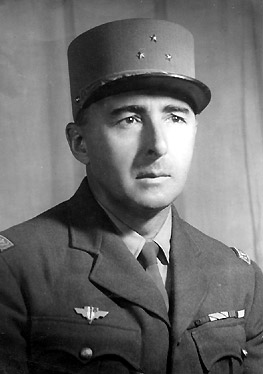
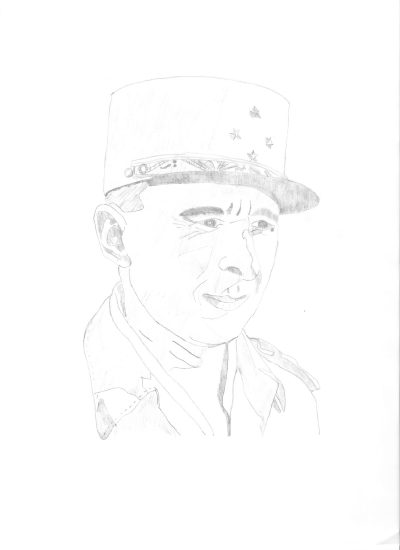
Edgard de Larminat (29 November 1895 - 1 July 1962) was a French general, who fought in two World Wars. He was one of the most important military figures who rejoined the Free French forces in 1940. He was awarded the Ordre de la Libération.
Larminat joined the French Army at the outbreak of the First World War as a private and by 1915 had completed his officer training and later fought at the Battle of Verdun. During the course of the war, Larminat was wounded three times and gassed once. He achieved the rank of captain by the close of the war.
Completing his military studies at Saint - Cyr in October 1919, Larminat volunteered to serve in the colonial infantry. In this capacity, he saw combat against rebels in Morocco, and later served in Mauritania and Indochina. At the outbreak of the Second World War, Larminat was a lieutenant colonel stationed in the Levant.
Larminat was still serving in the Middle East when France surrendered in June, 1940. He refused to comply and was imprisoned in Damascus, but escaped and fled to join Free French forces in Palestine. He was later active in Africa and during the liberation of Italy and France, serving as the commander of the 1st Free French Division in north Africa, the French Pursuit Corps in Italy, and the French II Corps and Atlantic Army Detachment in France. De Larminat led the controversial bombardment of the city of Royan in April 1945.
After the war, Larminat served in several positions, notably as the Inspector General of overseas troops and the inspector of colonial forces. He also served as the first president of the Association of the Free French. Larminat retired to the reserves in 1956 and was briefly recalled to active duty in 1962 to chair the Court of Military Justice charged with judging the actions of French officers who took part in the rebellion of colonial troops in Algeria in 1961. Before the court convened, Larminat committed suicide on 1 July 1962.